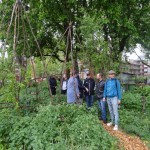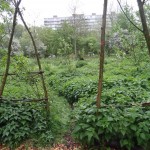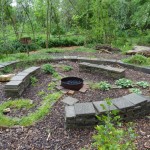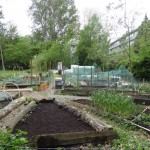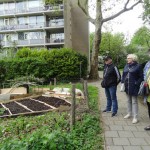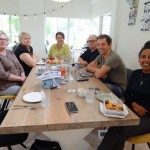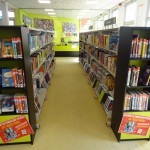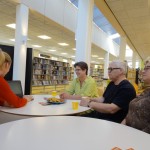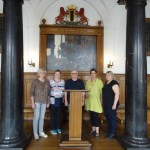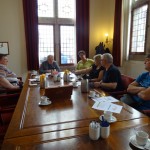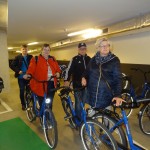Representatives of Rezekne municipality familiarise themselves with the issues of integration and social work in the Netherlands
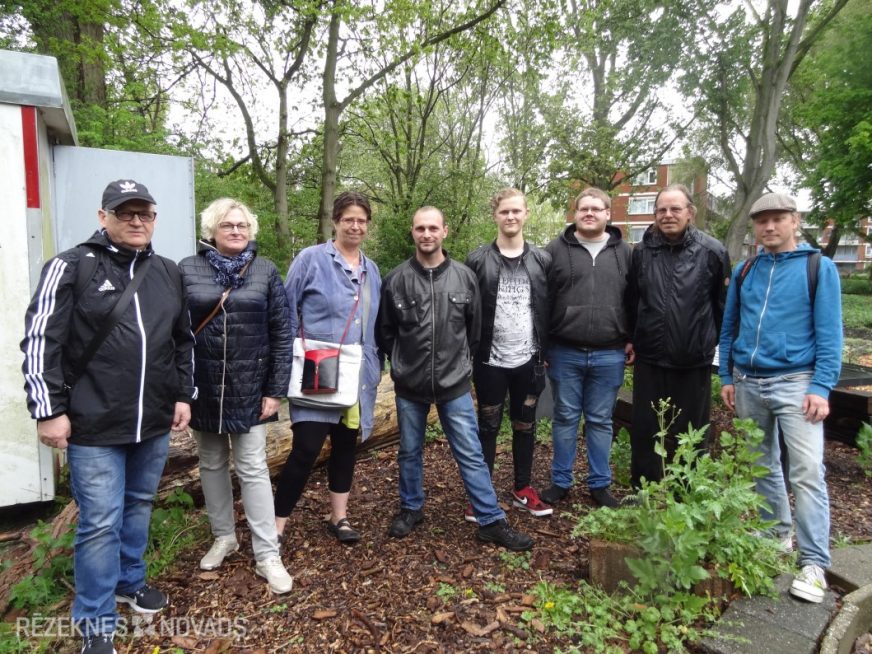
On 24-26 April, the representatives of the municipality of Rēzekne, executive director Janis Troška, head of the social service Sylvia Strankale, external liaison officer, project coordinator Inta Rimšāne, public relations specialist Diana Selecka project CRISCO “Promoting the regional crossroads of the regions at the crossroads of the community in order to increase the effectiveness of cohesion policy” (“Crossroad of the Regions-Fostering Involvement of Local life to improve Social cohesion”) visited Delft Municipality in the Netherlands.
Visiting the Delft City Council, the guests were told about the integration of the insiders. Only 30 % Delft is Dutch, the rest are migrants, the number of nationalities here is 150. In order to include migrants in society, a variety of measures are taken, a large part of which is carried out by voluntary assistants, by Stefan Vanderstappen, co-ordinator of the Delft City Council Integration Project.
In one of the city's micro-district libraries, a project is being implemented to improve the reading skills of citizens by promoting readiness, and the library specialists Inessa van Hoffa (Inessa van Hoff): “we call on everyone to take a variety of measures so that our citizens are more educated and, by raising their level of education, they are able to be able to participate in society. Language skills are a key factor in engaging in all the processes in society."
In a social entrepreneurship project, a cafe located in one of the city's micro-districts, any citizen can make a meeting if he needs to discuss a question, the owner of the story cafe, Harmen van der Laan: “I had noticed that there is no place in this micro-area where we can communicate.” I submitted a project to the local government, it was supported and now people from various social layers are coming to us, who need a place to meet – local residents, local government employees, students. I believe that this is a great opportunity. Prices are very acceptable for food, so that anyone can afford to buy, like coffee, but we don't mind if someone comes with our food. The main concern is the communication of people and the ageing of society. 'The harman is pleased that his idea has been assessed and he is popular here.
The CO-ordinator of the CRISCO project in the Netherlands, Helen van der Linden, reported another project supported by the municipality. In one of the courtyards of multi-apartment houses, the local residents of 18 local residents have set up a garden. The project allows the environment to be organized and helps people communicate with each other, telling Helen van der Linden: “18 families are working in the garden, but our condition that we communicate only with two representatives. These representatives ensure that everything is good in the garden and they also collect money because the local government believes that the harvest is being produced and therefore these beneficiaries are required to pay. '
Similarly, another project-related project is being implemented in the micro-area, when the group of people asked the local government to install a garden in one of the house courtyards. The start of the project took almost two years, but with the result, Helen van der Linden was very pleased: “a group of 20 people who wanted to be useful to the public, and now they show local pupils how the plants grow, because not everyone knows how to grow up, such as carrots, the picnic area sometimes takes a chemical hour.” When the harvest is harvested, these people organize picnic on which residents of neighbouring houses are invited. The society has a number of benefits: schools in addition to the organisation of different classes, the possibility for local people to communicate that fresh vegetables they offer to the poor. '
The municipality has a lot of labour to make the micro-districts more secure. Helen van der Linden says that she had noticed that the areas where girls were playing on the streets were very safe, so the playgrounds were set up in several districts and the police had done that the parents were no longer worried, and the playgrounds were playing the girls and boys of different nationalities, “when they are children, no one knows what kind of belief the parents are.” They just play together and when they grow up big, they will communicate with each other. It is also a integration. "
Janis Troška, executive director of the municipality of Rezekne, said that the trip was valuable: it is always useful to see how the municipalities are working elsewhere. The local government's work organisation was very interesting – to get to the Delft City Council employee, you must sign in and then go to acceptance at a time. This clearly facilitates the work of local government specialists, allowing the planning of their time as free access to any employee obstructs the work. Volunteering, which is carried out in almost all areas, has been addressed and the society is very responsible for it. When they spend their time on the public, volunteers receive the words of recognition that motivate them. Unfortunately, our society is still not ready, work is needed to educate it.
Interestingly, social problems are addressed by non-governmental organisations (NGOs). The country is spending money and THE NGOs are working further. This is a very interesting solution.
Unusual seemed to be a solution to transport problems. As the Netherlands has a high population density, a lot of bicycles are used. Our delegation was taken to the municipal garage, each handed a bicycle and we went on with bicycles. '
The head of the social service, Sylvia Strankale, said that the social work organisation seemed to be worthy of attention: 'every person who wants to receive social assistance must also make an effort to achieve positive progress. We may help our customers too much, denying them the opportunity to take the initiative and take care of themselves.
Social entrepreneurship is a great way to support different sections of society, thinking that Latvia should think more about how to help people with special needs. "
The PROJECT CRISCO Coordinator Inta Rimšāne believes that these types of project travel allow the evaluation of existing cases in Rezekne's municipality and look at new, interesting things around: social entrepreneurship, people with special needs, the integration of different world views into society is very important. The Netherlands is a great example.
The social project, within which 20 men have formed the garden, is highly addressed and a variety of plants grow there. They prepared a project for two years, and now children from adjacent schools can visit the garden, look at the way from the garden to the plate. Similarly, these people are offering the crops to the small population of the surrounding houses, food parcels. When asked about their motivation, these men say that it is important for them to provide their arteries for the benefit of society. '
Diana Selecka Text and Photo

